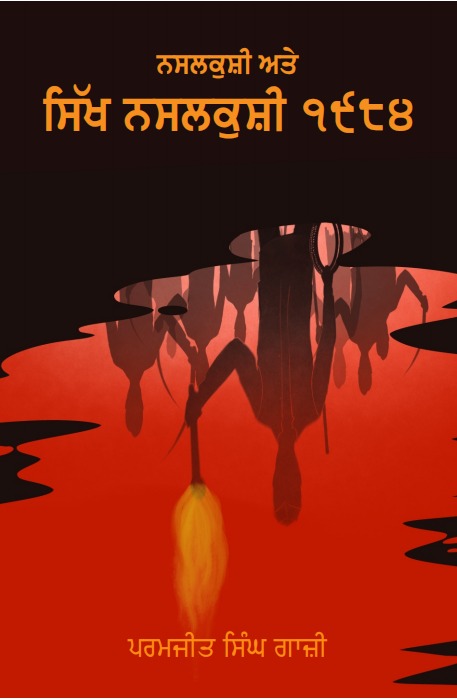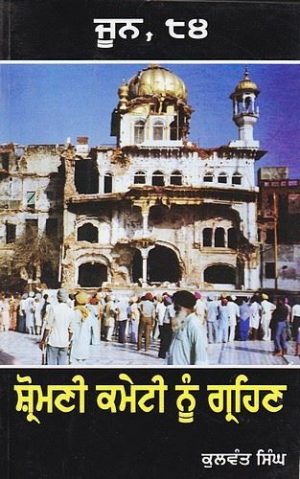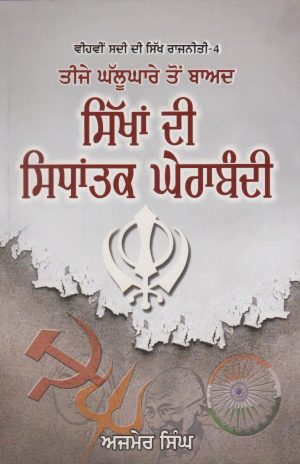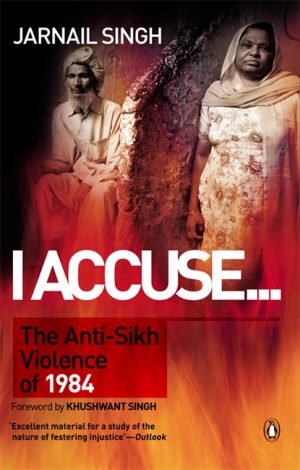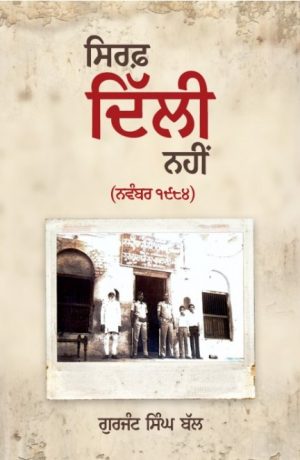ਨਸਲਕੁਸ਼ੀ ਅਤੇ ਸਿੱਖ ਨਸਲਕੁਸ਼ੀ 1984 ਕਿਤਾਬ ਬਾਰੇ:
ਨਸਲਕੁਸ਼ੀ ਅਤੇ ਸਿੱਖ ਨਸਲਕੁਸ਼ੀ 1984 ਕਿਤਾਬ ਸਿੱਖ ਸਿਆਸਤ ਦੇ ਸੰਪਾਦਕ ਸ. ਪਰਮਜੀਤ ਸਿੰਘ ਗਾਜ਼ੀ ਵੱਲੋਂ ਲਿਖੀ ਲਿਖਤ “ਨਸਲਕੁਸ਼ੀ, ਨਸਲਕੁਸ਼ੀ ਦੇ ਅੱਠ ਪੜਾਅ ਅਤੇ ਸਿੱਖ ਨਸਲਕੁਸ਼ੀ 1984” ਉੱਤੇ ਅਧਾਰਤ ਹੈ।
ਨਸਲਕੁਸ਼ੀ ਅਤੇ ਸਿੱਖ ਨਸਲਕੁਸ਼ੀ 1984 ਕਿਤਾਬ/ਕਿਤਾਬਚੇ ਵਿਚ ਲੇਖਕ ਨੇ ਨਸਲਕੁਸ਼ੀ ਦੇ ਸੰਕਲਪ, ਨਸਲਕੁਸ਼ੀ ਸ਼ਬਦ ਦੀ ਘਾੜਤ, ਨਸਲਕੁਸ਼ੀ ਦੀ ਜ਼ੁਰਮ ਵਜੋਂ ਕੌਮਾਂਰਤੀ ਕਾਨੂੰਨ ਵਿਚ ਮਾਨਤਾ, ਨਸਲਕੁਸ਼ੀ ਦੇ ਜੁਰਮ ਦੀ ਪਰਿਭਾਸ਼ਾ, ਨਸਲਕੁਸ਼ੀ ਦੇ ਵੱਖ-ਵੱਖ ਪੜਾਵਾਂ ਤੇ ਨਵੰਬਰ 1984 ਦੀ ਸਿੱਖ ਨਸਲਕੁਸ਼ੀ ਦੇ ਘਟਨਾਕ੍ਰਮਾਂ ਦੀ ਨਸਲਕੁਸ਼ੀ ਦੇ ਪੜਾਤਾਂ ਨਾਲ ਮਿਲਵੀਂ ਪੜਚੋਲ ਸਾਂਝੀ ਕੀਤੀ ਹੈ। ਇਹ ਲਿਖਤ ਦਿੱਲੀ ਦਰਬਾਰ ਵੱਲੋਂ ਨਵੰਬਰ 1984 ਦੇ ਘਟਨਾਕ੍ਰਮ ਬਾਰੇ ਪ੍ਰਚਾਰਿਆ ਜਾਂਦਾ “ਦੰਗਿਆਂ” ਦਾ ਬਿਰਤਾਂਤ ਭੰਨਦੀ ਹੈ ਅਤੇ ਨਵੰਬਰ 1984 ਦੀ ਇੰਡੀਆ ਭਰ ਵਿਚ ਹੋਈ ਸਿੱਖ ਵਿਰੋਧੀ ਹਿੰਸਾ ਨੂੰ ਨਸਲਕੁਸ਼ੀ ਦੇ ਕੌਮਾਂਤਰੀ ਜੁਰਮ ਵੱਲੋਂ ਪੇਸ਼ ਕਰਦੀ ਹੈ।
ਨਸਲਕੁਸ਼ੀ ਅਤੇ ਸਿੱਖ ਨਸਲਕੁਸ਼ੀ 1984 ਕਿਤਾਬ ਨੀਸਾਣਿ ਪ੍ਰਕਾਸ਼ਨ ਵੱਲੋਂ ਛਾਪੀ ਗਈ ਹੈ।
About Nasalkushi Ate Sikh Nasalkushi 1984 Book:
“Nasalkushi Ate Sikh Nasalkushi 1984” by Parmjeet Singh Gazi is a comprehensive exploration of the concept of genocide, focusing specifically on the Sikh Genocide of 1984. The book delves into the origins of the term “genocide,” coined by Raphael Lemkin in 1944, and examines its legal recognition as a crime under international law. Parmjeet Singh Gazi meticulously outlines the legal definition of genocide, emphasizing its specific criteria and the implications for accountability.
One of the “Nasalkushi Ate Sikh Nasalkushi 1984” book’s significant contributions is its detailed analysis of the stages of genocide, which serve as a framework for understanding how such atrocities unfold. Author Parmjeet Singh Gazi applies this framework to the events surrounding the Sikh Genocide in 1984, drawing parallels and highlighting key moments that align with the established stages. This comparative study not only sheds light on the systematic nature of the violence faced by Sikhs but also underscores the need for recognition and justice.
Published by Neesaan Publication, the book serves as a critical resource for scholars, activists, and anyone seeking to understand the complexities of genocide within the context of the Sikh community. Gazi’s work is both a historical account and a call to action, advocating for acknowledgment and remembrance of the atrocities committed in 1984. Through rigorous research and analysis, “Nasalkushi Ate Sikh Nasalkushi 1984” adds an essential voice to the discourse on genocide and human rights.

